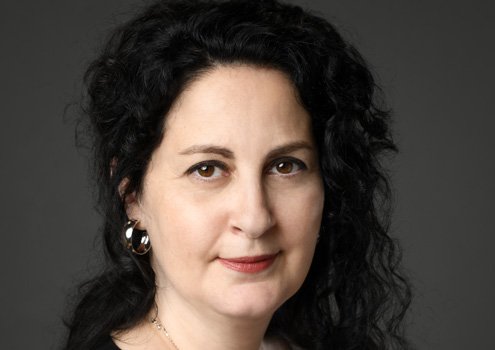Reading time: About 2 minutes
Eufemia Fantetti suggests that writers make friends with their writing process — in order to use more energy rather than burn it up with frustration…
The short fiction, A Recipe for Disaster & Other Unlikely Tales of Love, by Eufemia Fantetti, was runner-up for the Danuta Gleed Literary Award and won a Bressani Prize. She’s a three-time winner of Accenti Magazine’s contest with work in various anthologies including Love Me True, Body & Soul and Back Where I Came From. Her memoir, My Father, Fortune-tellers & Me: A Memoir, was a finalist in the Canadian Book Club Awards.
I was excited to talk to Fantetti about how she approaches writing.
Q. Roughly how much time do you spend writing every day?
Short answer: Not enough. Long answer: Really not enough. I tend to write in short spurts sporadically throughout the week when I commute to work. These last four years, I was caregiving my father through his final days and writing grew sparse.
Q. What’s a simple activity or habit that makes you a better writer?
Reading articles, essays and books (or listening to a podcast) on a topic that I am exploring in my writing helps to focus the gaze of my wandering mind’s eye and settles my heartbeat into a calm rhythm. These days, I’m reading about the myriad ways we all process or experience grief.
Q. What interferes with your writing?
Excellent question. Everything, everywhere, sometimes all at once—also known as worry. I come from a long line of expert worriers. If the IOC added Worrying as an Olympic competition, my family would be world champions, dominating in furrowed brows, racing minds, increased heart rates and muscle tension.
Q. How do you persuade yourself to sit down to write on days when you really, really DON’T feel like doing it?
I would like to say I’ve solved this mystery, but that would mean I know where the manuscript-bodies are buried. I’ve noticed my process often involves going for a walk or requires some kind of movement before I can settle in a chair for set period, so I plan the activity time as well to avoid letting resistance overwhelm me.
Q. Is there a particular motto or saying that you’ve found helpful for writing?
My father (in his glorious Italian accented English) always used to tell me, “Maybe you no the best but you canned be the worse.” He would also tell me, “Do the best you can do. That’s all you can be do.” Not exactly an inspiring pep talk that inspires gold medals, yet it was his humorous way of telling me not to be so hard on myself and to put things into perspective.
Q. Which stage of the writing process do you enjoy the most: researching, writing or editing/rewriting and why?
This is like asking me to choose the best dessert when there are so many excellent options for sweets. I enjoy researching for all the learning it involves, writing for the inspiration that arrives from effort, rewriting for the opportunity to engage deeper with craft.
Q. What’s one of the best books you’ve read (either fiction or non) in the last five years?
Another decision between a rock candy and a hard pastry like biscotti? Three books I still think about since putting them down include The End of Eve by Ariel Gore, A Living Remedy by Nicole Chung and Crying in H Mart by Michelle Zauner.
Q. What book are you reading right now?
Grief is for People by Sloane Crossley.
Q. What do you think is the biggest misperception that new writers have about the act of writing?
A pervasive idea that there is only one way to approach writing or being a writer with actionable steps that have to occur in a linear pattern. I don’t remember where I came across this advice, but it’s posted above my desk because it applies to so many creative endeavours: Make friends with your process—it allows you to use more energy instead of burning it up in frustration.


